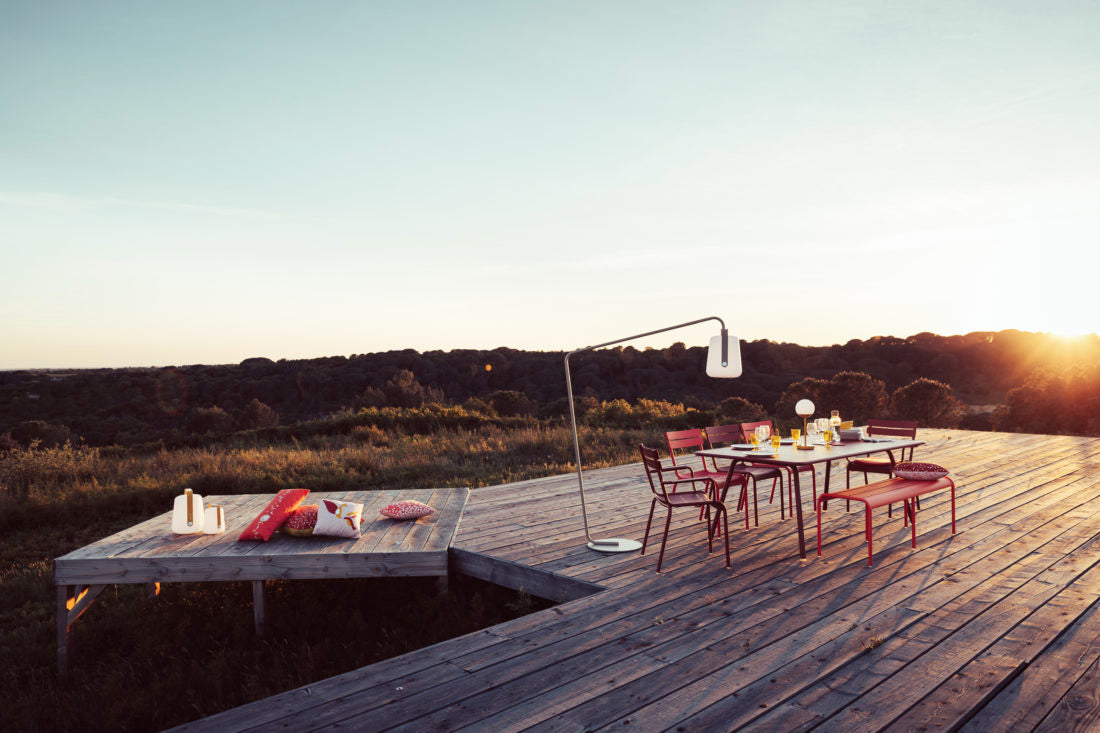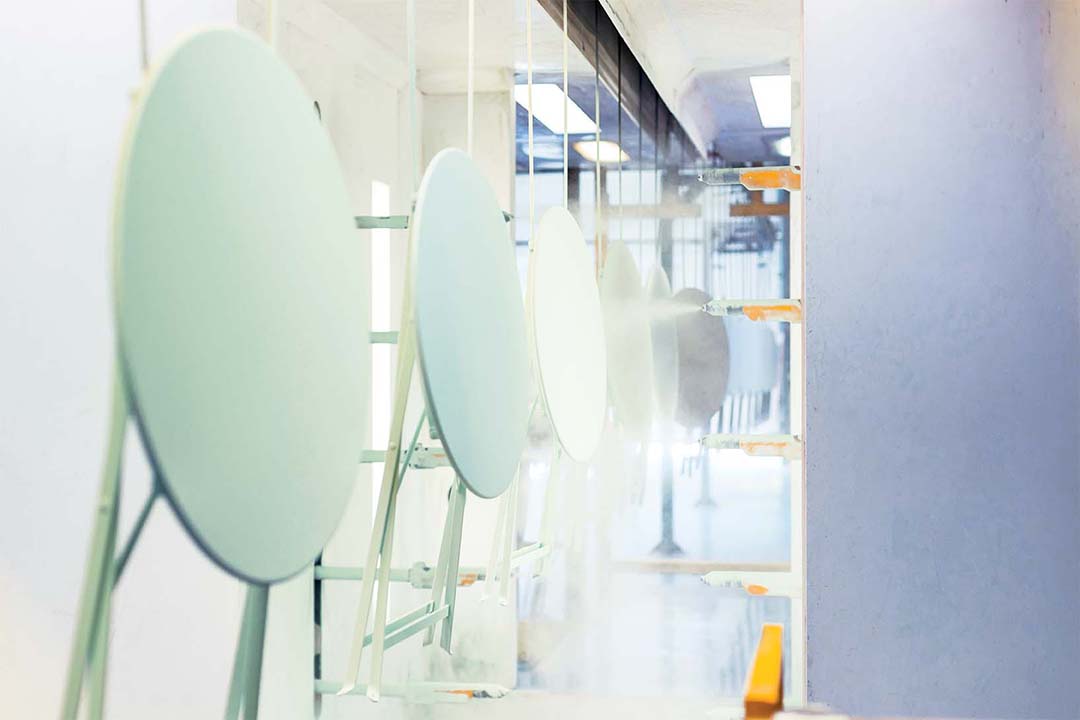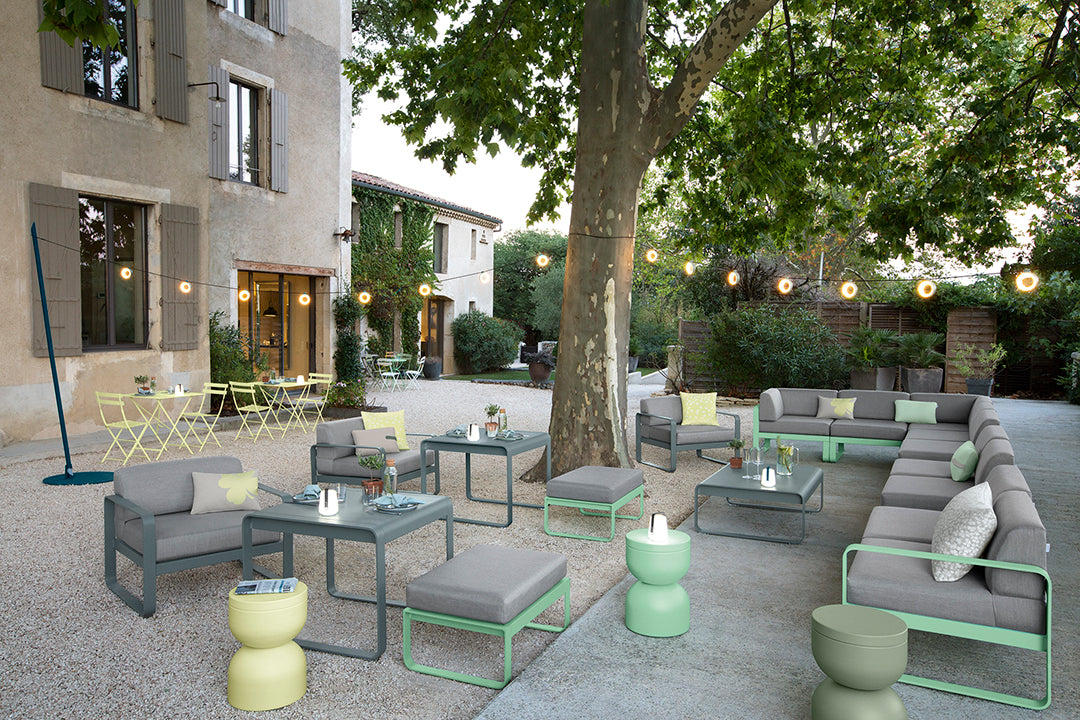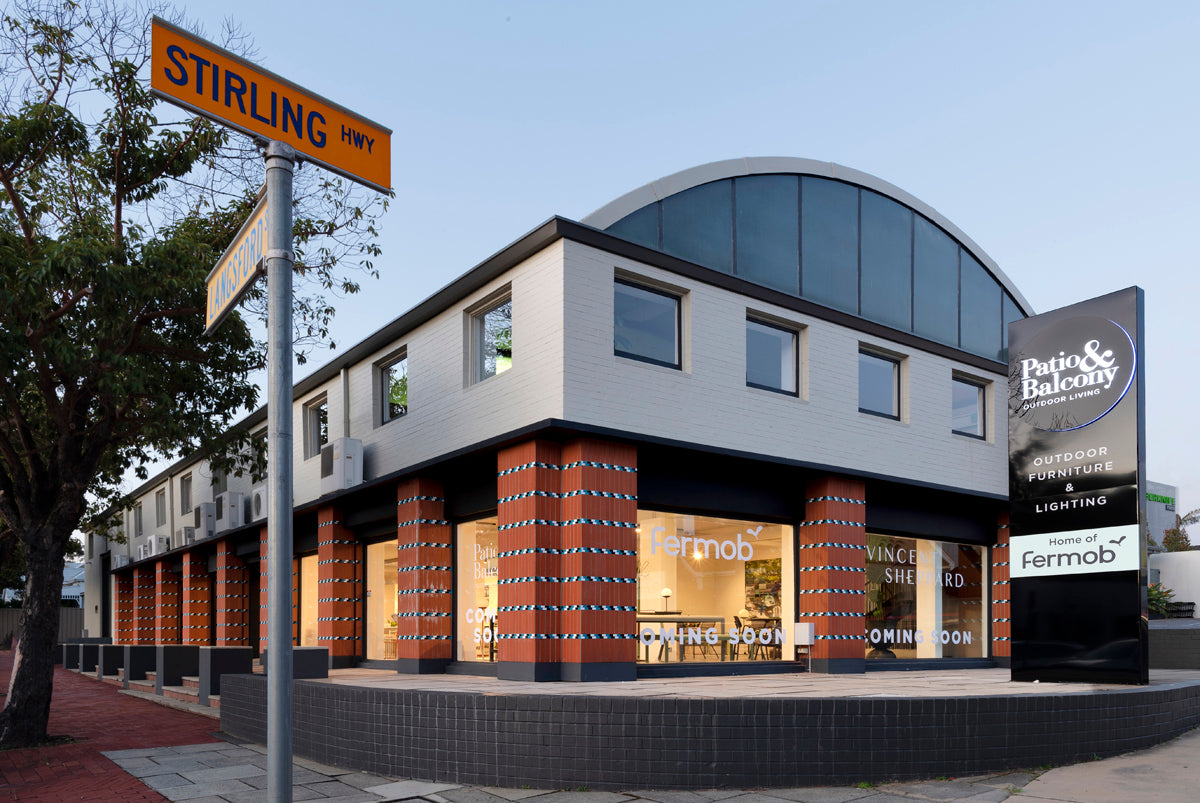This article was featured in Outside magazine earlier this year.
With origins dating back to the late 19th century Paris, Fermob is famous the world over for its vibrant outdoor metal furniture.
Fermob is probably best known for its ubiquitous Bistro range, which was conceived amid the same design spirit that inspired the Eiffel Tower. The folding chair, originally designed by Edouard Leclerc, first appeared in 1889 and adorned the open-air cafés along the banks of the Seine. It was an instant success, particularly among the lemonade-sellers of the time, who used the chairs to avoid paying the licence for a permanent terrace.
The distinctive slats and lightweight frame chairs and tables – now produced by Fermob and using the original Simplex patent registered by Leclerc – can be seen outside thousands of cafés and bars across the globe from Paris, to New York to Beijing.
But, let’s go back to the beginning of Fermob. In the early 20th century the companies in the Lyon region of France only used iron to create ornaments or architectural structures. It was at this time that an iron craftsman in Thoissey, where the company is still based today, had the idea of diversifying his business. He decided to add an ornamental scroll to a chair back: a small step that was to open up a wealth of opportunity.
In 1953, his son, a graduate of the Arts and Crafts school in Cluny, saw the potential in his father’s idea and decided to move the small craftsman’s workshop up a notch to industrialise it and mechanise the manufacture of garden furniture. And so, the 1900 range was born. Today, it remains almost the same as the day it was created.
The Rebirth Of Fermob
In the 1980s, the iron garden furniture market found itself in competition with one-piece plastic furniture sold on a large scale in supermarkets. The company had to reduce its activity and cut its workforce down from 60 to just 10 people in 1989. It was then that current CEO, Bernard Reybier (pictured below), took over Fermob and began to turn around the business’ fortunes.
 Fermob CEO: Bernard Reybier
Fermob CEO: Bernard Reybier
Mr Reybier altered the distribution policy, began exporting and gave the company a real identity, investing in R&D and cutting edge industrial processes. In doing so, he reinvented the rules of outdoor furniture, combining metal, design and colour to make the brand’s top-quality furniture accessible, mobile, functional, durable and fun.
He took historical designs and had them reworked (the Bistro chair took on a new look with metal slats that could be coloured), undertook major research on techniques and materials and partnered with designers of many different nationalities and from all backgrounds. Thirty years after taking over Fermob, Reybier has grown the company to 250 employees around the world.
Expanding The Business
Although first and foremost a manufacturer of metal garden furniture, Fermob has developed a growing reputation as a leading outdoor space designer over the years. This gradual shift has been driven by a determination to create pieces that are as functional and comfortable as possible. Fermob has used its outdoor expertise to great effect, adding new materials such as technical fabrics and resins.
The brand has also developed a range of non-furniture items, including the Les Pièces Rapportées collection – a range of decorative accessories for outdoor (and indoor) use – and other pieces such as planters, parasol bases and pedestal tables.
More recently, Fermob has made its first foray into the world of lighting with the release of a range of outdoor lamps under the Balad moniker. While this new collection marks a first for the brand, the pieces carry the same trademark qualities – practical, mobile and design. What’s more, Fermob has continued to develop new furniture collections that cover all areas of the garden, terraces and even indoor spaces, giving customers the wealth of choice they need to form their very own colourful, sociable worlds.
 Life with Fermob in the wine producing Province of Beaujolais, France.
Life with Fermob in the wine producing Province of Beaujolais, France.



